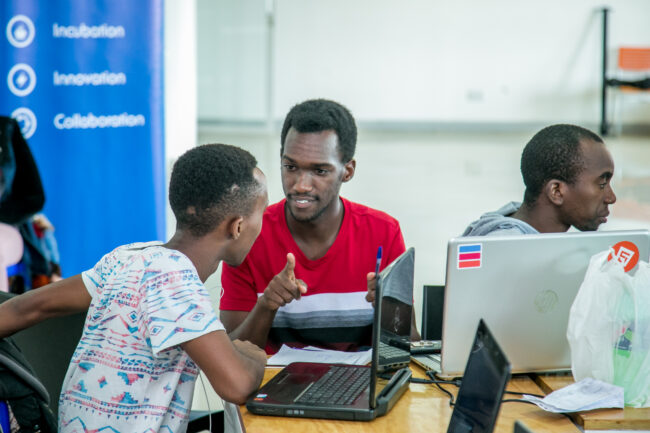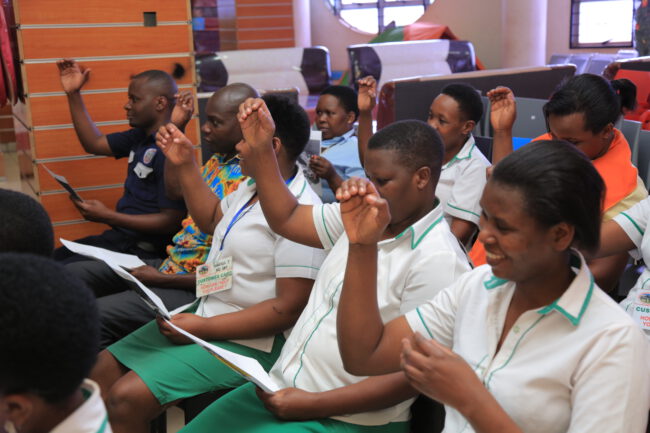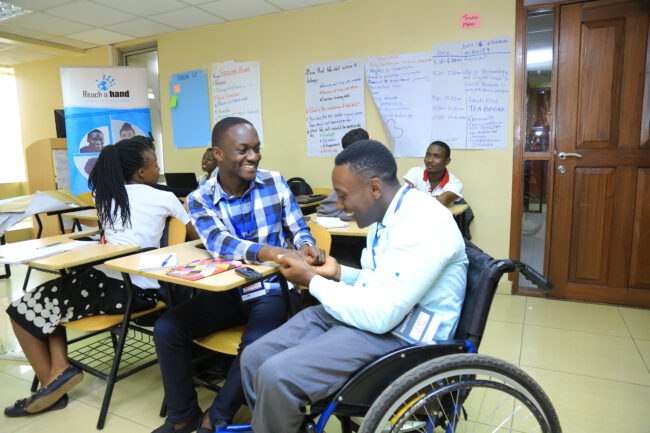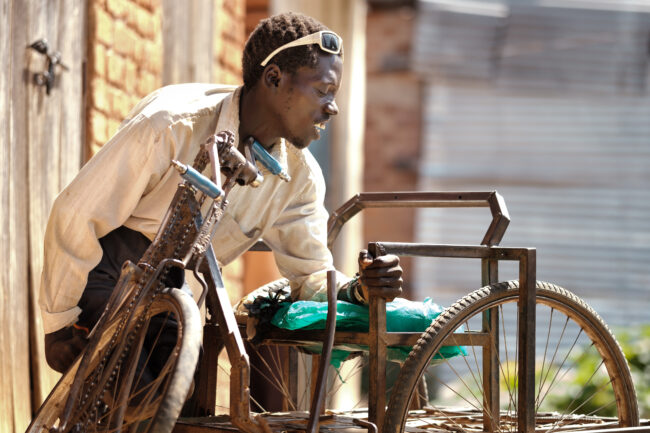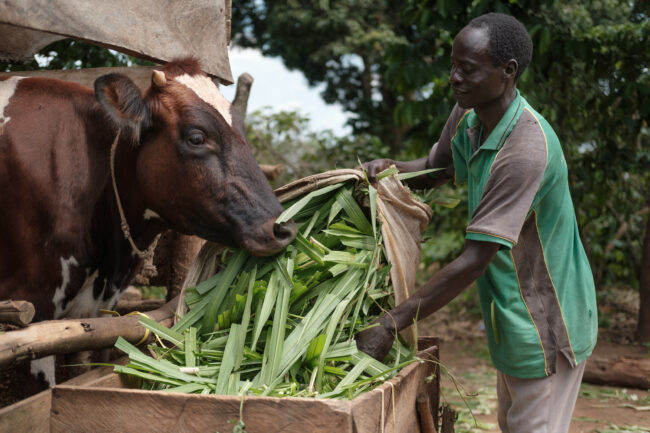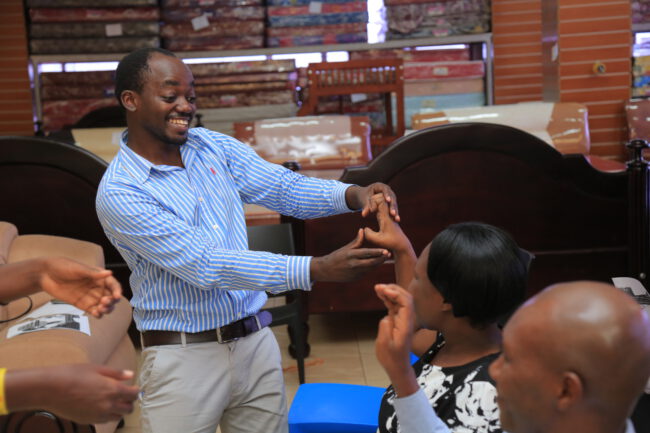The Problem
Youth unemployment is a global crisis and with one of the youngest populations in the world, Uganda faces a huge challenge: the national unemployment rate currently stands at 9.2% and at 13.3% for youth aged between 18-30. The unemployment rate among youth with disabilities is estimated to be even higher.
In 2017, as a part of the Livelihood Improvement Challenge, a scoping study and learning expedition conducted by Light for the World revealed that low levels of disability awareness and lack of knowledge on how to put inclusion into practice remain major stumbling blocks among employers and other mainstream livelihood actors.
At the same time, many youth with disabilities grow up in an environment of low expectations, often facing neglect and abuse. The study further found that most youth with disabilities are unemployed, even those with university degrees. Negative attitudes and discrimination were cited as the most challenging obstacles towards both waged and self-employment.
The employment situation for young women in Uganda is just as alarming; young men are more engaged in waged employment (32%) than young women (18%) (UBOS, 2015). For young women with disabilities, the situation is even worse as they are forced to work against disability and gender based societal prejudice.
The Solution
The project has a two-legged approach.
Approach 1: Enabling access to waged employment for youth with disabilities.
Employers in the private sector through signing up to the Uganda Business and Disability Network and participating in the Disability Readiness Campaign will build their confidence on different aspects of inclusive employment such as inclusive recruitment, accessibility and reasonable accommodation. Employers will also accommodate job seekers with disabilities for work experience placements and consider them when job openings arise. Work experience placements will bridge the education-experience gap that is a major block to employment for youth and will serve to impart necessary employability skills to enable youth with disabilities and young women to cope in waged employment. Soft skills training will be conducted to prepare them for the interview process and work environment.
Evidence from similar work placements under the Make 12.4% Work Initiative (at a success rate of 50%) shows that this approach is effective in connecting youth with disabilities to waged employment opportunities.
Approach 2: Enabling access to self-employment through group enterprises.
Enterprise groups will be formed with specific attention to youth with disabilities (40%) and young women (50%). These enterprise groups will have access to business development services and financial literacy training as well as coaching and mentoring from trained Disability Inclusion Facilitators. Support will be provided from group formation and enterprise selection, to application for Youth Livelihood Programme funds and enterprise start-up. This will see to it that the enterprise groups grow into viable businesses that provide decent work for these vulnerable youth.
Youth empowerment through group enterprises is an approach that has been implemented and well documented by our network partners such as National Union of Persons with Disabilities in Uganda (iSAVE Program), GOAL (DYNAMIC Program) and ZOA Uganda (SEE Acholi Program).Lessons learned from these programs have provided us with a wealth of knowledge to adapt good practices from.
Additionality
The proposed project has a clear value addition to the Make 12.4% Work initiative. We are not looking at ‘business as usual’, but instead want to use this opportunity to further improve our work and achieve more impact. With this project, we can reach more, scale and ensure that greater numbers of youth will have decent employment, with a focus on young women and youth with disabilities. For this consortium the most important added value is the fact that we will be able to invest in a thorough approach to training, coaching and mentoring the inclusive enterprise groups. This will enhance the quality of the business plans as well as the size of the income that will be generated from the businesses. Building on existing business development packages, we will come up with accessible and tailored packages that can be used by the enterprise groups as well as the DIFs. From experience, we know that there is little documented good practice around inclusive rural economies. Amongst others, we are working with the ILO and IFAD on further developing the knowledge base on this topic. This project will support the development of such materials for wide dissemination and learning. What is innovative about this project is that we work with Business Development Service providers who are youth with disabilities themselves. We have experience with engaging with this group already but more as trainers on disability awareness and inclusive employment, not to work with enterprise groups. Also, the fact that we link enterprise groups to lead entrepreneurs (the replicator approach) is innovative in the context of Uganda.
